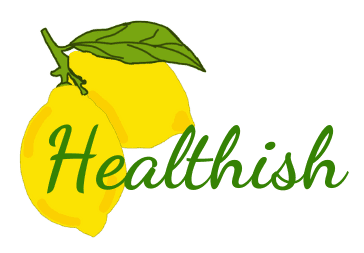
The Ultimate Guide to Gut Health: Foods, Habits, and Supplements for a Happier, Healthier You

https://www.livegood.com/probioticGutSupport
Gut health is becoming a buzzword in the wellness world—and for good reason. Our gut, often referred to as our “second brain,” plays a vital role in everything from digestion and immunity to mood and overall well-being. Keeping your gut in balance is key to a healthy, thriving body, so let’s explore the importance of gut health and practical steps you can take to support it.
Why Gut Health Matters
Your gut is home to trillions of bacteria and other microorganisms, collectively known as the gut microbiome. These tiny organisms help digest food, synthesize vitamins, and even communicate with your immune system. When the microbiome is balanced, you’re likely to feel energetic and healthy. But when it’s out of balance—often due to poor diet, stress, antibiotics, or illness—you may experience issues like bloating, fatigue, weakened immunity, or even mental health challenges.
Signs of an Unhealthy Gut
If your gut health isn’t optimal, your body may give you signals. Some signs of an imbalanced gut include:
- Digestive Issues: Bloating, gas, constipation, or diarrhea
- Food Intolerances: Difficulty digesting certain foods
- Frequent Illnesses: A weakened immune system
- Skin Issues: Conditions like acne, eczema, or rosacea
- Mood Changes: Increased anxiety, depression, or irritability
- Sugar Cravings: Overgrowth of bad bacteria can lead to cravings for sugar, which feeds the harmful bacteria.
If you experience these symptoms frequently, it might be time to focus on your gut health.
Foods for a Healthy Gut
Your diet plays a crucial role in determining the health of your gut. Here are some foods known to support a healthy microbiome:
- Probiotic-Rich FoodsYogurt: A well-known source of probiotics; look for varieties with live, active cultures.
Kefir: A fermented milk drink rich in probiotics.
Sauerkraut & Kimchi: Fermented vegetables are packed with gut-friendly bacteria.
Miso & Tempeh: These fermented soy products are staples in Japanese cuisine and great for the gut. - Prebiotic FoodsPrebiotics are types of fiber that feed the good bacteria in your gut. Some prebiotic foods include:Garlic & Onions: Great for adding flavor and feeding gut bacteria.
Asparagus & Artichokes: High in fiber and beneficial for the microbiome.
Bananas: Especially when slightly green, they’re a great source of prebiotic fiber.
Oats & Barley: Rich in beta-glucan, a fiber that feeds gut bacteria and can improve gut health. - Fiber-Rich FoodsFiber is crucial for digestion and overall gut health. Some high-fiber foods include:Whole Grains: Brown rice, quinoa, and whole wheat are excellent choices.
Legumes: Lentils, chickpeas, and beans are full of fiber and protein.
Berries: Blueberries, raspberries, and strawberries are high in fiber and antioxidants. - Healthy FatsOlive Oil & Avocados: Rich in healthy fats, which support gut lining integrity.
Nuts and Seeds: Almonds, walnuts, and chia seeds provide fiber and healthy fats.
Habits for a Healthy Gut
Along with a gut-friendly diet, adopting certain habits can help maintain a balanced microbiome.
- Stay HydratedWater helps the digestive system function smoothly. Aim to drink plenty of water throughout the day, as it aids digestion and supports the mucosal lining in the gut.
- Practice Mindful EatingEating slowly, savoring each bite, and chewing thoroughly can improve digestion and reduce stress on the gut. Avoid eating while stressed, as stress can negatively affect digestion.
- Manage Stress LevelsStress hormones like cortisol can disrupt gut health. Incorporate relaxation practices such as meditation, deep breathing exercises, or yoga into your daily routine to support a calm, balanced gut.
- Get Adequate SleepSleep is essential for overall health, including gut health. Poor sleep has been linked to an imbalanced gut microbiome. Aim for 7-9 hours of quality sleep each night.
- Exercise RegularlyPhysical activity has been shown to positively influence gut health by promoting the growth of beneficial bacteria. Aim for regular, moderate exercise, such as walking, cycling, or strength training.
Supplements to Support Gut Health
If you need a little extra support, certain supplements can help balance and nourish your gut microbiome:
- Probiotic SupplementsProbiotics are live beneficial bacteria that can help restore gut balance, especially after a course of antibiotics. Look for a supplement that contains a diverse array of strains and at least 10 billion CFUs (colony-forming units) for general gut support.
- Prebiotic Fiber SupplementsPrebiotic supplements, often in the form of fiber powders, can help feed the good bacteria in your gut. These are especially useful if you struggle to get enough fiber from your diet alone.
- Digestive EnzymesDigestive enzyme supplements can aid the breakdown of food, making digestion easier and potentially reducing symptoms like bloating or gas.
- L-GlutamineThis amino acid has been shown to support gut lining integrity and may be helpful for people with gut inflammation or conditions like leaky gut.
- Omega-3 Fatty AcidsOmega-3s, found in fish oil or flaxseed oil, are anti-inflammatory and can support gut health by reducing inflammation.
Final Thoughts
Taking care of your gut is about more than just avoiding digestive discomfort; it’s about creating a foundation for lasting health and well-being. By eating gut-friendly foods, adopting healthy habits, and considering supportive supplements, you can help your microbiome flourish. Remember, changes in gut health take time, so be patient with yourself and stay consistent. A happy, balanced gut is one of the best gifts you can give your body!
Want to know more?
I'd love to hear from you. Leave your message in the form below.
